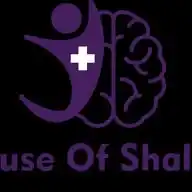
House Of Shalom
February 27, 2025 at 05:11 PM
In Zimbabwe, the referral pathway for reporting Gender-Based Violence (GBV) involves several key steps and stakeholders. Here's an overview:
- *Initial Report*: Survivors can report GBV incidents to the nearest health facility, police station, or a trusted community leader.¹
- *Health Services*: For sexual violence cases, health facilities provide emergency services, including post-exposure prophylaxis (PEP), HIV testing, and counseling.
- *Police and Justice*: The police are responsible for investigating GBV cases and preparing a docket for court proceedings. The justice system provides legal support and protection to survivors.
- *Psychosocial Support*: Organizations like Musasa Project and ZiCHIRE provide psychosocial support, counseling, and referral services to survivors.²
- *Safe Shelters*: Survivors can access safe shelters, like the one provided by Musasa Project, for temporary accommodation and protection.
Some key organizations involved in the referral pathway include:
- *Musasa Project*: Provides legal, psychosocial, and shelter services to GBV survivors.
- *ZiCHIRE*: Offers community-based support, including psychosocial counseling and referral services.
- *UNFPA Zimbabwe*: Supports GBV prevention and response efforts, including the development of referral pathways.³
If you or someone you know is experiencing GBV, you can reach out to the following helplines:
- *National GBV Hotline*: Contact Musasa Project for assistance.⁴
- *Police*: Report GBV incidents to the nearest police station or call the police hotline.
Remember, timely reporting and access to services are crucial for GBV survivors.